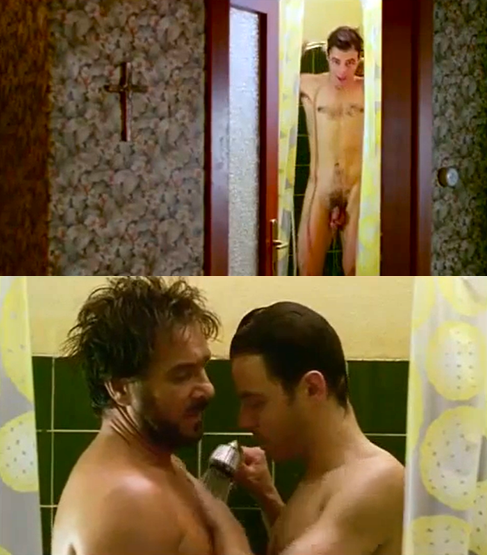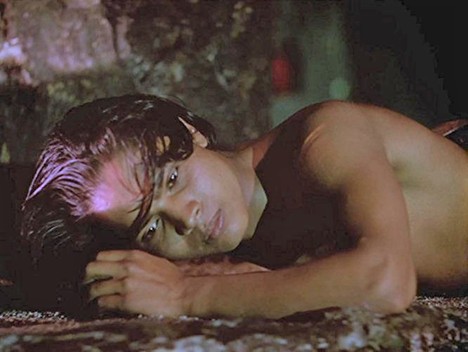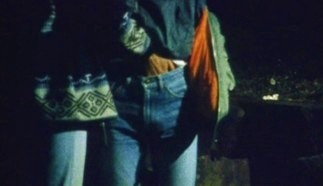saying goodbye to poor
sabu
by Douglas Messerli
Ian Iqbal Rashid (writer and director) Surviving
Sabu / 1997
The Mysore Indian-born actor Sabu (born Selar
Sabu in 1924, also known as Sabu Dastagir) was a beautiful child star whose
career began at the age of 13 when he was discovered by director Robert
Flaherty and cast as Rudyard Kipling’s Toomai in Elephant Boy, directed
by Flaherty and Alexander Korda, the latter of whom would also direct Sabu in The
Drum (1938) and the hit movie The Thief of Bagdad (1940) when the
boy was 16 years of age. Roles in Korda’s Jungle Boy, another
Kipling-inspired film, and John Rawlins’ Arabian Nights, both from 1942
followed, locking him into career as a figure in works of high exoticism,
which, after World War II would result in his performance mostly in grade B
movies, both British and American, for the rest of his life.
At
the age of 20 Sabu became a United States citizen and served in the Army Air
Force as a tail gunner and ball turret gunner on B-24 Liberators.
In 1947 he performed, at age 23, in what his last and greatest
high-quality film as the Young General Dilip Rai in what was perhaps the most
exotic and erotic film of them all, The Black Narcissus, directed by Korda’s own “discovery,” British filmmaker Michael
Powell, who described Sabu as having a “wonderful grace” about him.
A
year later Sabu married Marilyn Cooper whom he met on the set of Song of
India. They had a son, Paul, who later established the band Only Child
which created big hits for David Bowie, Alice Cooper, Madonna, Prince, and many
others (“Cassie’s Song,” “Just for the Moment,” “New Girl in Town,” etc.)
Sabu’s career opportunities, once the beautiful boy he came of age, had
mostly evaporated. In 1950 a fire to the second story of his family home in
Hollywood was tried as a case of arson, but may have actually been arranged by
Sabu himself in order to receive insurance money which he needed to help his
family financially survive. He died, at age 39, of a heart attack, only two
days after a checkup with a doctor who reportedly had told him: "If all my
patients were as healthy as you, I would be out of a job.”
Ian Iqbal Rashid’s remarkable short fictional documentary of 1997 begins
with an Indian man relating the early cinema days of the legendary child actor
Sabu in what his son will soon describe, interrupting the narration, as a
“Prince of Wales” voice. We catch quick glimpses of Sabu performing in Elephant
Boy and The Thief of Bagdad.
Suddenly the film shifts to black-and-white, where we see the
British-sounding man’s son smoking a cigarette on the street and seeing his
father (Suresh Oberoi) walking toward their house, calls out to his him, the
father refusing to respond. Inside the walls and shelves are lined with
photographs of the young Sabu, a copy of Life with Sabu on the cover,
perhaps of the time of Sabu’s marriage, etc. The color “documentary” continues,
while we witness more clips from Sabu’s films:
Sabu found fame and
fortune in Hollywood. Still only as a
teenager, Sabu was
living the life that most immigrants to
the West could only
dream of. When my son was a boy I’d
make him watch Sabu’s
films on television. I’d allow him to
stay up late. It was
important he should know we can succeed
in the countries. That
it’s possible.
As
his son Amin (Navin Chowdhry, playing the director), asks his father to now
talk a little more about his coming to England and what life was like, we
realize that this is not a documentary about Sabu but rather about the young
director and his father, whose values we soon discover are quite in opposition
to each other.
In
the kitchen, soon after or at another time (again filmed in black-and-white) we
see the father preparing a full Indian dinner, the son, having brought him a
tape of Indian music with jazz infusions, the father responding, “Fusion or
confusion.” Asked if he is staying for dinner, Amin responds he’s got an
appointment with his psychiatrist. He’s stressed. Besides, the son soon reminds
his elder that he doesn’t eat wheat, dairy, meat. “All the things you said were
good for us when I was a kid, they’re not.” We notice he’s wearing a T-shirt
which sports the words “Gay and Lesbian Center,” something which obviously has
stressed his Muslim father as well.
Again through a color-film sequence, we see the son recounting his
father’s experiences of having come to England to be a policeman, but after
being refused year after year worked as a security guard, proud of what he
does, proud of being loyal.
At
another meeting in the kitchen, where the father is fixing dinner, Amin
announces that he needs to talk to his father about something, the elder
responding, “You’ve decided to meet a nice Muslim girl and give us all a reason
to live?” The son has shown the movie to some “important people” who are
interested if only they can finish it. Yet his father finally responds that he
doesn’t think he should be making a film about Sabu. “You are not worthy.
...You’re making fun of a great Hollywood star.”
The son’s response says nearly everything that represents their vastly
different conceptions of the world which they cohabit: “Hollywood star! He was
a colonialist fantasy. Those films dad, they look at Sabu with a colonizers
gaze.”
“Why make a film” his father protests, “about someone you despise?”
When we return to the description of Sabu, his golden almost nude body
spread out in the sand we might almost
imagine that the narrator was speaking to us from the pages of a gay physique
magazine rather than the father’s front room:
Sabu had an unnatural
natural beauty. Such a beautiful body.
A muscular athletic
physique. [In the clip, Subu turns over
to reveal the front of his
body] I told my son, look at Sabu’s
body, that he should
exercise and himself look like Sabu. But
he was always reading his
books and playing with his dolls
and singing songs. Never
interested in exercise.
Clearly if, as the son argues, Sabu was seen
through the colonizer’s gaze, so also has his father and others seen him
through a queer gaze.
Again back in the kitchen (in black and white) the son continues: “You
know the way you talk about him...it’s almost like.... Those movies filmed him
like he was a woman. And you bought into it!”
The resultant anger ends in the father hurling back his own insults at
his son’s admiration of white boys.
At another moment during the filming, in which the father has
momentarily escaped to the backyard, they talk about Sabu’s death. “Poor Sabu.
Died so young,” the father looking over at his son smoking a cigarette,
“probably smoked. Anyway he wasn’t a Muslim.”
Amin responds: “I don’t think it was smoking. I think he was probably
crushed by a film industry that rejected him when he became an adult. He
couldn’t get any decent work. Gave up hope.
....It was about racism dad, a Paki leading man kissing a white woman on
the screen. It was never going to happen.”
The father finally at his wit’s end, storms out. “When I get back I want
all of you out of my house.”
In Rashid’s film, we have come to perceive, Sabu is but a symbol of all
that one generation perceives as a continuation of the racism and denigration
of outsiders about a culture that the previous generation could not admit if
they were to survive and succeed to the best of their abilities. In this short
film we see not just the generations clashing against their different
perceptions about moral values, work ethics, and sexuality, but facing off in a
directional shift in the entire course of history: for Amin’s father every
patient step on his part was a movement forward, a small act of progress that
could lead ultimately to assimilation, while for Amin everything is turned
around, having never resulted in significant change; the hope to which his
parents’ generation had been committed has shifted into a despair for what Amin
and his friends see as movements into the past of discrimination and outright
hate for anything that stands outside of ruling society’s normative cultural
patterns. The two of them view the world from entirely different perspectives.
Yet, in this director’s amazing short work, father and son each are able
to turn around and see one another from the other’s viewpoint, which brings
them back to life, away from their frozen stares into the future and past, into
the present:
Amin’s father speaks: “When he was growing up, I tried not to talk to
him much about the past, about back home. I thought I should focus on the
future, tell him what he didn’t know about this place. Instead he told me.”
In antiphon Amin speaks: “He left Uganda* with no money. He started from
scratch. He rebuilt his life. He had courage. How did he do it? It couldn’t
just have been so his son might have a better life. It just couldn’t.”
The father realizes now that when Peter Sellars and other actors rubbed
a chocolate-covered makeup across their face, everyone laughed. “They were
laughing at me.”
Amin speaks of the time when he first told his father that he was gay,
recalling the look upon his face, realizing, “He’d have swapped me for anyone.
Anyone else’s son.”
And the night he told us he was gay, his father recalls, he stayed over
that night, wanting everything to be all right: “That took courage.”
Returning to the house, Amin finds his father watching a Sabu film and
joins him on the couch, the two quoting in unison a line about Mogli from
Sabu’s Jungle Boy. The elder agrees to finish the last few frames of his
son’s film with him, remarking that he will be all right with whatever his
director son presents in this movie. His philosophy he says is “Relax, it’s
only a film. What harm can a film do?” If his question appears to offer a true
reconciliation, it also belies the truth that language, story, and image are
the most terrifyingly powerful things in life.
*Director Ian Iqbal Rashid was born in Tanzania, from
where his family, after being refused asylum in the United Kingdom and the US,
settled in Canada, Rashid finally moving to London as an adult. Rashid has made
other films, including the gay comedy Touch of Pink, but is best known
in England for his poetry.
Los Angeles, January 2, 2021
Reprinted from My Queer Cinema and World
Cinema Review (January 2021).


















